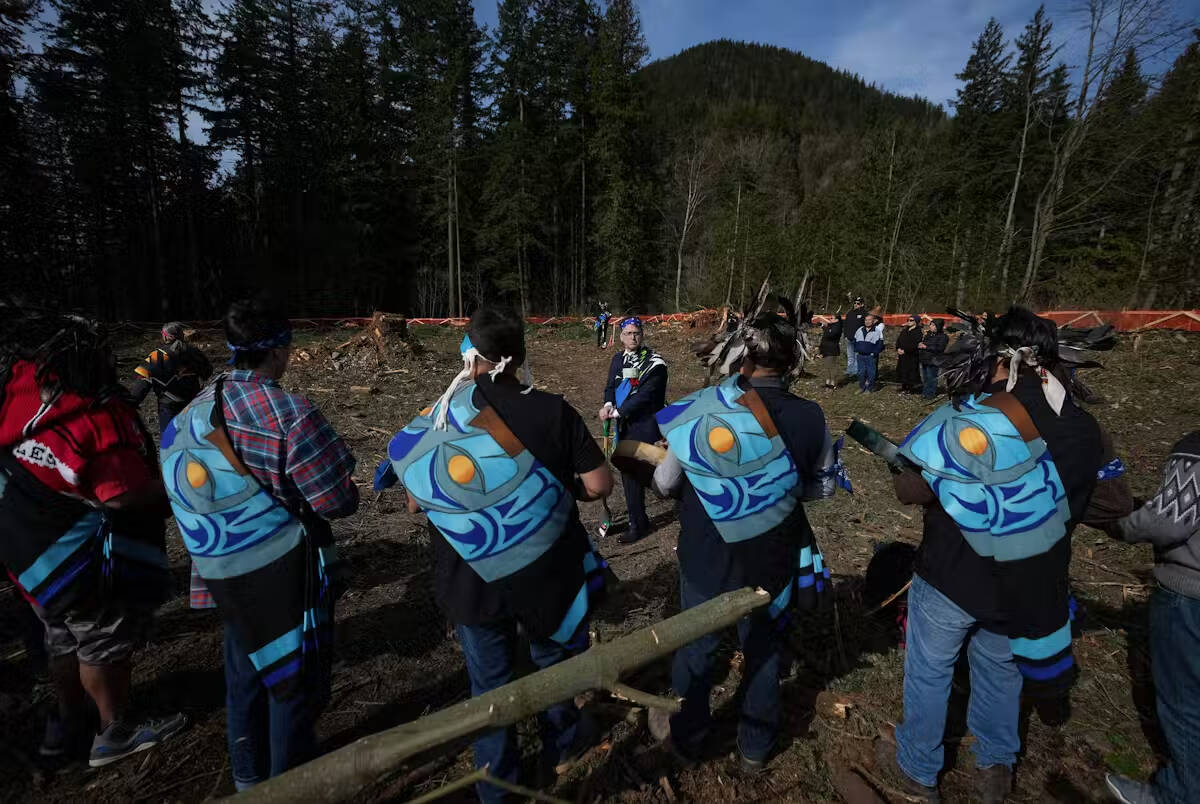Health
Indigenous-Led Health Education Crucial for Canada’s Reconciliation Efforts

Canada’s approach to health professional education must undergo a significant transformation to advance reconciliation with Indigenous Peoples. Currently, there is a marked shortage of Indigenous doctors, nurses, and healthcare providers in communities that need them the most. Moreover, students often receive education about Indigenous health in a manner that is optional, inconsistent, and frequently not led by Indigenous educators.
This critique is underscored by Jamaica Cass, an Indigenous physician and medical educator based in Tyendinaga Mohawk Territory. As the first Indigenous woman in Canada to pursue both medicine and a PhD, Cass emphasizes that Indigenous-led health education is vital for fostering trust and equity within the healthcare system. She highlights the importance of Indigenous communities taking the lead in shaping health professional training to ensure it reflects the needs of the populations served.
Addressing Gaps in Indigenous Health Education
According to the Assembly of First Nations, only 14 of the 94 calls to action from the Truth and Reconciliation Commission (TRC) have been fully implemented a decade after its final report. Calls No. 23 and No. 24 are particularly relevant, advocating for the training and retention of more Indigenous health professionals and the inclusion of Indigenous health education in all medical curricula. These steps are not merely symbolic; they represent practical actions that can enhance health outcomes and save lives.
A recent report from the Conference Board of Canada further confirms the necessity of Indigenous leadership in education, governance, and workforce planning. The report, titled “Answering the Call: Strategies to Increase the Number of Indigenous Physicians in Canada,” reveals that Indigenous students, especially from rural and remote areas, often face challenges related to career guidance and culturally relevant curricula, leading to lower graduation rates.
In response to these systemic issues, innovative programs are emerging across Canada. For instance, the Queen’s-Weeneebayko Health Education Program, based in Moosonee, Ontario, integrates local Indigenous knowledge and practices with biomedical science. Supported by the Weeneebayko Area Health Authority (WAHA), Queen’s University, and the Mastercard Foundation, this initiative aims to recruit and train students from the Hudson and James Bay region, ensuring they return to serve their communities.
Building a Culturally Safe Health Workforce
Several other initiatives are contributing to the cultivation of a culturally competent healthcare workforce. The University of British Columbia’s Northern and Rural MD Pathway aims to attract applicants who have connections to rural, remote, or Indigenous communities. This program incorporates a rural and remote suitability score and includes early placements to support training in these areas.
Similarly, the University of Manitoba’s Mahkwa omushki kiim: Pathway to Indigenous Nursing Education (PINE) program provides academic support alongside cultural programming, aiming to enhance retention rates among First Nations, Inuit, and Métis students.
These programs not only focus on individual student success but also aim to create a sustainable healthcare ecosystem that benefits whole communities. As trust in healthcare systems increases, individuals are more likely to seek care early, which can lead to improved health outcomes.
Despite the progress made, significant system-wide changes are still needed. Indigenous learners frequently encounter financial barriers that make professional education unaffordable. Additionally, they face challenges such as a lack of affordable housing in urban centers, underfunded K-12 schools that leave them unprepared for competitive admissions, and experiences of racism and isolation within professional programs.
Research indicates that students trained in rural or remote areas are more likely to practice there after graduation. For Indigenous students, pathways to medical practice become even more viable when education is grounded in community values and led by Indigenous educators.
Reconciliation in healthcare extends beyond apologies and ceremonies; it requires real structural change. This includes building a robust Indigenous health workforce, recognizing Indigenous knowledge alongside Western medicine, and ensuring Indigenous voices guide the design and governance of health programs.
Indigenous-led health education addresses these critical elements, moving reconciliation from the realm of promises to the practical realities experienced by patients, providers, and communities.
As Canada reflects on the past decade since the TRC, the path forward is clear. Supporting Indigenous-led educational initiatives is essential for turning reconciliation from a concept into an actionable reality in communities nationwide. The demonstrated success of programs like the Queen’s-Weeneebayko initiative exemplifies what is possible when Indigenous self-determination is prioritized in health education.
-

 Science3 months ago
Science3 months agoToyoake City Proposes Daily Two-Hour Smartphone Use Limit
-

 Top Stories3 months ago
Top Stories3 months agoPedestrian Fatally Injured in Esquimalt Collision on August 14
-

 Health3 months ago
Health3 months agoB.C. Review Reveals Urgent Need for Rare-Disease Drug Reforms
-

 Technology3 months ago
Technology3 months agoDark Adventure Game “Bye Sweet Carole” Set for October Release
-

 World3 months ago
World3 months agoJimmy Lai’s Defense Challenges Charges Under National Security Law
-

 Lifestyle3 months ago
Lifestyle3 months agoVictoria’s Pop-Up Shop Shines Light on B.C.’s Wolf Cull
-

 Technology3 months ago
Technology3 months agoKonami Revives Iconic Metal Gear Solid Delta Ahead of Release
-

 Technology3 months ago
Technology3 months agoApple Expands Self-Service Repair Program to Canada
-

 Technology3 months ago
Technology3 months agoSnapmaker U1 Color 3D Printer Redefines Speed and Sustainability
-

 Technology3 months ago
Technology3 months agoAION Folding Knife: Redefining EDC Design with Premium Materials
-

 Technology3 months ago
Technology3 months agoSolve Today’s Wordle Challenge: Hints and Answer for August 19
-

 Business3 months ago
Business3 months agoGordon Murray Automotive Unveils S1 LM and Le Mans GTR at Monterey









